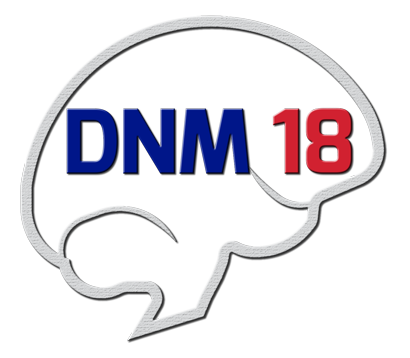

Our main speakers this year cover an exciting array of topics throughout the various sessions in our programme. Click on the images below to learn more.
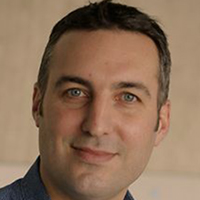 Stein Aerts is Professor at the Center for Human Genetics at KU Leuven and Group Leader at the VIB Center for Brain and Disease Research. His lab focuses on deciphering the genomic regulatory code, using a combination of single-cell and machine-learning approaches. He was awarded the AstraZeneca Foundation Award for Bioinformatics and holds an ERC Consolidator Grant.
Stein Aerts is Professor at the Center for Human Genetics at KU Leuven and Group Leader at the VIB Center for Brain and Disease Research. His lab focuses on deciphering the genomic regulatory code, using a combination of single-cell and machine-learning approaches. He was awarded the AstraZeneca Foundation Award for Bioinformatics and holds an ERC Consolidator Grant.
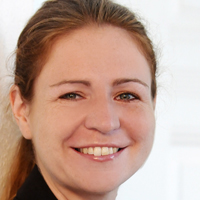 Simone Berkel studied Molecular Medicine and graduated at the University of Erlangen-Nuremberg (Germany) in 2007. Then she joined the Institute of Human Genetics at the University of Heidelberg (Germany) for her Ph.D. thesis and gained her Ph.D. in 2011.
Simone Berkel studied Molecular Medicine and graduated at the University of Erlangen-Nuremberg (Germany) in 2007. Then she joined the Institute of Human Genetics at the University of Heidelberg (Germany) for her Ph.D. thesis and gained her Ph.D. in 2011.
Dr Berkel currently works as a project leader and research scientist in the Department of Molecular Human Genetics at the Institute of Human Genetics in Heidelberg. Her main research interest is the identification of the genetic causes of neurodevelopmental disorders such as intellectual disability and autism spectrum disorders, and to further understand the patho-mechanisms and neuronal cellular impairments underlying these disorders using rodent and human cell culture models.
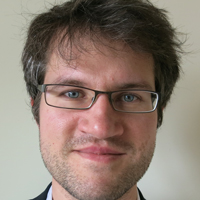 Dr Marcus Boehme is a Postdoctoral Researcher in the lab of Prof. John Cryan and Prof. Ted Dinan at APC Microbiome Ireland, University College Cork, Ireland. He completed his undergraduate training in Nutrition (Diploma) at the Friedrich-Schiller-University of Jena, Germany, where he investigated the impact of anti-inflammatory interventions on neurogenesis in the aged rodent brain under the supervision of Prof. Otto W. Witte (Department of Neurology, University Hospital Jena). He also worked in the lab of Prof. Michael Ristow (Experimental Nutritional Medicine, Institute of Nutrition, Friedrich-Schiller-University Jena) where he investigated the impact of low-level stressors on longevity in C. elegans.
Dr Marcus Boehme is a Postdoctoral Researcher in the lab of Prof. John Cryan and Prof. Ted Dinan at APC Microbiome Ireland, University College Cork, Ireland. He completed his undergraduate training in Nutrition (Diploma) at the Friedrich-Schiller-University of Jena, Germany, where he investigated the impact of anti-inflammatory interventions on neurogenesis in the aged rodent brain under the supervision of Prof. Otto W. Witte (Department of Neurology, University Hospital Jena). He also worked in the lab of Prof. Michael Ristow (Experimental Nutritional Medicine, Institute of Nutrition, Friedrich-Schiller-University Jena) where he investigated the impact of low-level stressors on longevity in C. elegans.
Dr Boehme received his PhD from the Friedrich-Schiller-University of Jena, Germany where he studied the long-term consequences of sepsis on brain plasticity and behaviour across lifespan.
His current research is focused on the impact of diet-microbiome interactions on neuroimmune signaling, behaviour and brain function across lifespan. He is the lead researcher on the Cork-led European-wide project AMBROSIAC, investigating the relationships between diet, stress and cognition across lifespan with a focus on the gut microbiota as a key mediator. Moreover, he is interested in the role of novel dietary interventions on the gut microbiome and their importance in early life, cognition, stress and aging.
 Dr Butovsky’s major scientific objective is to understand the biology of microglia and its relationship to the peripheral innate immunity of the brain in both homeostasis and neurodegenerative conditions. He completed his Ph.D. at The Weizmann Institute of Sceince in Israel, focused on the role of microglia in neurogenesis and the regulation of plaque depositions in Alzheimer's Disease (AD) models. Dr. Butovsky has since established his own laboratory at the Brigham and Women’s Hospital in Boston, MA, USA and holds an Assistant Professorship at Harvard Medical School. He has led a series of investigations which have thus far revolutionized knowledge of the innate immune system in neurodegenerative conditions and opened up new opportunities for studying early-life developmental conditions relationship to cognitive disorder predisposition. In addition to homeostatic microglia, most recently Dr. Butovsky’s lab has redefined our classification of microglia both in mice and in humans in disease. These microglial appear to be a universal measure of the response of microglial to neural injury and are seen in multiple neurodegenerative diseases including MS, ALS and AD. Dr. Butovsky’s endeavors have led to the generation of robust novel tools including a series of microglia-specific mAbs, microglia culture techniques, and new mouse models. Dr. Butovsky has published several high-impact papers which received worldwide recognition and maintains numerous NIH awards and national and international collaborations focused on elucidating the role of microglia regulation in ALS, MS, and AD with the goal of identifying mechanisms which may one day target personalized immune-based therapies for patients with neurodegenerative conditions.
Dr Butovsky’s major scientific objective is to understand the biology of microglia and its relationship to the peripheral innate immunity of the brain in both homeostasis and neurodegenerative conditions. He completed his Ph.D. at The Weizmann Institute of Sceince in Israel, focused on the role of microglia in neurogenesis and the regulation of plaque depositions in Alzheimer's Disease (AD) models. Dr. Butovsky has since established his own laboratory at the Brigham and Women’s Hospital in Boston, MA, USA and holds an Assistant Professorship at Harvard Medical School. He has led a series of investigations which have thus far revolutionized knowledge of the innate immune system in neurodegenerative conditions and opened up new opportunities for studying early-life developmental conditions relationship to cognitive disorder predisposition. In addition to homeostatic microglia, most recently Dr. Butovsky’s lab has redefined our classification of microglia both in mice and in humans in disease. These microglial appear to be a universal measure of the response of microglial to neural injury and are seen in multiple neurodegenerative diseases including MS, ALS and AD. Dr. Butovsky’s endeavors have led to the generation of robust novel tools including a series of microglia-specific mAbs, microglia culture techniques, and new mouse models. Dr. Butovsky has published several high-impact papers which received worldwide recognition and maintains numerous NIH awards and national and international collaborations focused on elucidating the role of microglia regulation in ALS, MS, and AD with the goal of identifying mechanisms which may one day target personalized immune-based therapies for patients with neurodegenerative conditions.
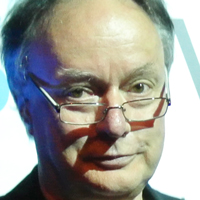 The Caroni lab investigates regulatory mechanisms that control the plasticity of identified subpopulations of synapses, neurons, neuronal microcircuits, and neuronal assemblies, and how this plasticity relates to learning, memory, and behavior. They are particularly interested in mechanisms that link circuit plasticity induced upon learning to consolidation and editing of memories, and in the contributions of specific cortical areas and hippocampal subdivisions to learning and memory.
The Caroni lab investigates regulatory mechanisms that control the plasticity of identified subpopulations of synapses, neurons, neuronal microcircuits, and neuronal assemblies, and how this plasticity relates to learning, memory, and behavior. They are particularly interested in mechanisms that link circuit plasticity induced upon learning to consolidation and editing of memories, and in the contributions of specific cortical areas and hippocampal subdivisions to learning and memory.
Pico Caroni studied biochemistry at the ETH in Zurich, Switzerland. He is a groupleader at the Friedrich Miescher Institut for Biomedical Research in Basel, Switzerland, and a Professor of Neuroscience at the University of Basel.
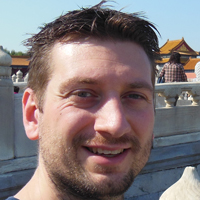 Jelle Dalenberg is a postdoctoral fellow in the Modern Diet and Physiology Research Center at Yale University, New Haven, CT, USA. He obtained his Master’s degree Human Machine Communication at the University of Groningen and in 2016, he received his PhD for his work on taste and flavor processing in the brain at the Neuroimaging Center in Groningen. His postdoctoral research combines behavioral, physiological, and neuroimaging measures to investigate human gut-brain interaction in ingestive behavior. His current focus is on the effects of artificial sweeteners on gut-brain interaction and on developing state of the art fMRI and data analysis techniques to improve our understanding of brain processes related to human eating behavior and physiology. Last year, Jelle received the New Investigator Travel Award from the Society for the study of ingestive behavior for his early postdoctoral work.
Jelle Dalenberg is a postdoctoral fellow in the Modern Diet and Physiology Research Center at Yale University, New Haven, CT, USA. He obtained his Master’s degree Human Machine Communication at the University of Groningen and in 2016, he received his PhD for his work on taste and flavor processing in the brain at the Neuroimaging Center in Groningen. His postdoctoral research combines behavioral, physiological, and neuroimaging measures to investigate human gut-brain interaction in ingestive behavior. His current focus is on the effects of artificial sweeteners on gut-brain interaction and on developing state of the art fMRI and data analysis techniques to improve our understanding of brain processes related to human eating behavior and physiology. Last year, Jelle received the New Investigator Travel Award from the Society for the study of ingestive behavior for his early postdoctoral work.
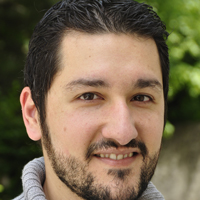 Raül Delgado Morales holds a Ph.D. in Neuroscience. He completed his doctoral studies at the Universitat Autònoma de Barcelona working on the field of epigenetics and depression, focusing on how aversive learnings modified histone acetylation patterns in key brain areas such the hippocampus. After that and thanks to a Marie Curie Postdoctoral Fellowship, he continued his research as a postdoc at the Max Planck Institute of Psychiatry in Munich, working on the link between depression and Alzheimer’s disease. His postdtoctoral studies focused on pharmacobehavioural assessment of APP mice models after suffering peripubertal stress. In 2015, after 4 years in Germany, Dr. Delgado-Morales moved back to Barcelona to work as a senior researcher at the Bellvitge Biomedical Research Institute (IDIBELL) driving and supervising neuroepigenetic projects related to Alzheimer’s disease and other dementias. Since 2016 he has a double appointment with the University of Maastricht. Currently, he is the Scientific Office Manager of IDIBELL.
Raül Delgado Morales holds a Ph.D. in Neuroscience. He completed his doctoral studies at the Universitat Autònoma de Barcelona working on the field of epigenetics and depression, focusing on how aversive learnings modified histone acetylation patterns in key brain areas such the hippocampus. After that and thanks to a Marie Curie Postdoctoral Fellowship, he continued his research as a postdoc at the Max Planck Institute of Psychiatry in Munich, working on the link between depression and Alzheimer’s disease. His postdtoctoral studies focused on pharmacobehavioural assessment of APP mice models after suffering peripubertal stress. In 2015, after 4 years in Germany, Dr. Delgado-Morales moved back to Barcelona to work as a senior researcher at the Bellvitge Biomedical Research Institute (IDIBELL) driving and supervising neuroepigenetic projects related to Alzheimer’s disease and other dementias. Since 2016 he has a double appointment with the University of Maastricht. Currently, he is the Scientific Office Manager of IDIBELL.
 Deborah Gustafson is a Professor at the State University of New York Downstate Medical Center, Department of Neurology, and Director of NeuroEpidemiology. She is Guest professor at the University Skövde, School of Health and Education in Sweden. Dr. Gustafson was first to report on a relationship between overweight and obesity and risk of Alzheimer's disease in population-based studies in Sweden. Today, she explores potential mechanisms of adipose tissue, as well as vascular and metabolic factors, in relationship to cognition, neuropsychiatric disorders and brain structure in epidemiologic studies. In Sweden, she is a co-Investigator on AGECAP, a Swedish initiative. In Brooklyn, New York, she is Co-Principal Investigator of the Brooklyn site of the NIH-funded, multicenter Women’s Interagency HIV Study (WIHS), for which she chairs the Aging Working Group and leads efforts in assessments of adiposity, frailty and cognition. She also collaborates with studies in Southwest American Indian elder communities. Deborah is the recipient of grants from the National Institutes of Health, the European Union, and the Swedish Research Council. Dr. Gustafson has over 160 peer-reviewed or invited publications. She is an invited speaker at international meetings on the topics of adiposity, vascular factors, and prevention of dementia and other mental disorders in the elderly. She is an Associate Editor for Alzheimer’s & Dementia (AlzDem) and the Journal of Alzheimers Disease (JAD); Chair of the Vascular Cognitive Disorders Professional Interest Area (VPIA) for ISTAART; on the Executive and 2018 Program Committees of the International Society of Vascular Behavioural and Cognitive Disorders (VasCog); member of the New York Academy of Sciences Nutrition, Dementia and Aging Working Group; and member of the New York City Regional Obesity Forum (NYCROF). Deborah received her educational training from the University of Minnesota (PhD, MS and BA), held an NIH postdoctoral fellowship in Genetic Epidemiology, received docentur in Experimental Psychiatry in Sweden and was awarded the Senior Researcher position in Psychiatric Epidemiology by the Swedish Research Council.
Deborah Gustafson is a Professor at the State University of New York Downstate Medical Center, Department of Neurology, and Director of NeuroEpidemiology. She is Guest professor at the University Skövde, School of Health and Education in Sweden. Dr. Gustafson was first to report on a relationship between overweight and obesity and risk of Alzheimer's disease in population-based studies in Sweden. Today, she explores potential mechanisms of adipose tissue, as well as vascular and metabolic factors, in relationship to cognition, neuropsychiatric disorders and brain structure in epidemiologic studies. In Sweden, she is a co-Investigator on AGECAP, a Swedish initiative. In Brooklyn, New York, she is Co-Principal Investigator of the Brooklyn site of the NIH-funded, multicenter Women’s Interagency HIV Study (WIHS), for which she chairs the Aging Working Group and leads efforts in assessments of adiposity, frailty and cognition. She also collaborates with studies in Southwest American Indian elder communities. Deborah is the recipient of grants from the National Institutes of Health, the European Union, and the Swedish Research Council. Dr. Gustafson has over 160 peer-reviewed or invited publications. She is an invited speaker at international meetings on the topics of adiposity, vascular factors, and prevention of dementia and other mental disorders in the elderly. She is an Associate Editor for Alzheimer’s & Dementia (AlzDem) and the Journal of Alzheimers Disease (JAD); Chair of the Vascular Cognitive Disorders Professional Interest Area (VPIA) for ISTAART; on the Executive and 2018 Program Committees of the International Society of Vascular Behavioural and Cognitive Disorders (VasCog); member of the New York Academy of Sciences Nutrition, Dementia and Aging Working Group; and member of the New York City Regional Obesity Forum (NYCROF). Deborah received her educational training from the University of Minnesota (PhD, MS and BA), held an NIH postdoctoral fellowship in Genetic Epidemiology, received docentur in Experimental Psychiatry in Sweden and was awarded the Senior Researcher position in Psychiatric Epidemiology by the Swedish Research Council.
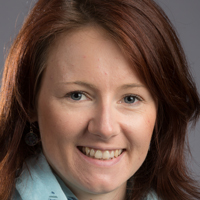 Eilis Hannon is a Bioinformatician in the Complex Disease Epigenetics Group at the University of Exeter Medical School. She possesses a strong statistical background having studied for a BSc in Mathematics at Cardiff University. In order to transition to the field of genomics of brain disorders, she completed her PhD in Bioinformatics at Cardiff University Centre for Psychological Medicine and Clinical Neurosciences. During her PhD she developed a novel statistical approach to characterise the trajectories of genes associated with schizophrenia and bipolar disorder in the brain across the life course. She joined the Epigenetics Group in Exeter in 2014 to work on epigenome-wide association studies of complex traits. Her current research focuses on applying the latest methods to integrate genetic, transcriptomic and epigenomic datasets in order to identify the functional consequences of genetic risk factors for complex brain disorders.
Eilis Hannon is a Bioinformatician in the Complex Disease Epigenetics Group at the University of Exeter Medical School. She possesses a strong statistical background having studied for a BSc in Mathematics at Cardiff University. In order to transition to the field of genomics of brain disorders, she completed her PhD in Bioinformatics at Cardiff University Centre for Psychological Medicine and Clinical Neurosciences. During her PhD she developed a novel statistical approach to characterise the trajectories of genes associated with schizophrenia and bipolar disorder in the brain across the life course. She joined the Epigenetics Group in Exeter in 2014 to work on epigenome-wide association studies of complex traits. Her current research focuses on applying the latest methods to integrate genetic, transcriptomic and epigenomic datasets in order to identify the functional consequences of genetic risk factors for complex brain disorders.
 Xin Jin received his Ph.D from Shanghai Jiao Tong University, China in 2007 and conducted his postdoctoral work in the National Institutes of Health (NIH), USA from 2008-2011. He started his lab at the Salk Institute for Biological Studies, La Jolla from 2012 and is currently an Associate Professor of Neurobiology at Salk. His research interests focus on the molecular and circuit mechanisms of action learning and selection in the basal ganglia circuitry of health and disease. He is recognized by a number of awards for academic achievements including the Benedict J. Latteri Award from NIH, Gruber International Research Award from Society of Neuroscience, and New Scholar Award from the Ellison Medical Foundation.
Xin Jin received his Ph.D from Shanghai Jiao Tong University, China in 2007 and conducted his postdoctoral work in the National Institutes of Health (NIH), USA from 2008-2011. He started his lab at the Salk Institute for Biological Studies, La Jolla from 2012 and is currently an Associate Professor of Neurobiology at Salk. His research interests focus on the molecular and circuit mechanisms of action learning and selection in the basal ganglia circuitry of health and disease. He is recognized by a number of awards for academic achievements including the Benedict J. Latteri Award from NIH, Gruber International Research Award from Society of Neuroscience, and New Scholar Award from the Ellison Medical Foundation.
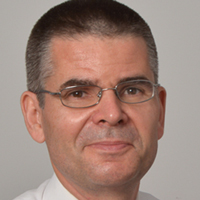 Peter Jonas studied Medicine at the University of Giessen, Germany. He obtained his MD in 1986 in Physiology in the group of Werner Vogel. After a short time as a postdoc, he moved to the Max Planck Institute for Medical Research, Heidelberg, Germany, as a research assistant, working with the Nobel laureate Bert Sakmann from 1990–1994. In 1994, he took over a position as associate professor at the Technical University of Munich, Germany. In 1995, he accepted a position as full professor and head of department at the University of Freiburg, becoming the youngest full professor of physiology in Germany. In November 2010, he moved to IST Austria as a full professor and founding member of the Neuroscience Research Cluster at the Institute. Peter Jonas received several research prizes, including the Gottfried Wilhelm Leibniz award, the Fick award, the Tsungming Tu award, two ERC advanced grants, and the Wittgenstein Award of the Austrian Minister of Science, Research and Economy and the Austrian Science Fund. He is elected member of the German National Academy of Sciences Leopoldina, the Academy of Sciences Heidelberg, and the Academia Europaea. Furthermore, he is member of the Board of Reviewing Editors of the journals Science and Neuron. The research interests of Peter Jonas focus on synaptic transmission and plasticity, microcircuit function, GABAergic interneurons, mechanisms of exocytosis, subcellular patch-clamp recording, and quantitative modeling.
Peter Jonas studied Medicine at the University of Giessen, Germany. He obtained his MD in 1986 in Physiology in the group of Werner Vogel. After a short time as a postdoc, he moved to the Max Planck Institute for Medical Research, Heidelberg, Germany, as a research assistant, working with the Nobel laureate Bert Sakmann from 1990–1994. In 1994, he took over a position as associate professor at the Technical University of Munich, Germany. In 1995, he accepted a position as full professor and head of department at the University of Freiburg, becoming the youngest full professor of physiology in Germany. In November 2010, he moved to IST Austria as a full professor and founding member of the Neuroscience Research Cluster at the Institute. Peter Jonas received several research prizes, including the Gottfried Wilhelm Leibniz award, the Fick award, the Tsungming Tu award, two ERC advanced grants, and the Wittgenstein Award of the Austrian Minister of Science, Research and Economy and the Austrian Science Fund. He is elected member of the German National Academy of Sciences Leopoldina, the Academy of Sciences Heidelberg, and the Academia Europaea. Furthermore, he is member of the Board of Reviewing Editors of the journals Science and Neuron. The research interests of Peter Jonas focus on synaptic transmission and plasticity, microcircuit function, GABAergic interneurons, mechanisms of exocytosis, subcellular patch-clamp recording, and quantitative modeling.
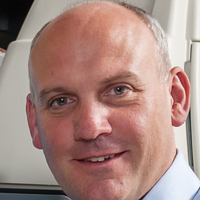 Stephen Matthews is Professor of Physiology, Ob-Gyn and Medicine at the University of Toronto and Director of Research at the Alliance for Human Development. He received his PhD from the University of Cambridge, UK, and was appointed to the University of Toronto in 1996. Professor Matthews served as Chair of the Department of Physiology from 2007-2014. His research is focused towards understanding how the fetal environment affects developmental trajectories leading to modified neurologic and neuroendocrine function. He has established that these effects can extend across multiple generations. With a focus on epigenetics, his research team is determining the molecular mechanisms by which such ‘programming’ can occur. In a parallel program of study, his group is investigating drug and hormone transport mechanisms in the placenta and fetal brain, with a focus on developing novel treatments to protect the fetus. Professor Matthews is committed to translating fundamental research. He was founding co-director of the MAVAN program, which followed neurocognitive development in children following adverse early experience. He currently co-leads large pregnancy intervention studies in India and Africa focused towards improving maternal, infant and child health. Professor Matthews has secured over $25M in research funding, published over 200 full papers and trained 50 PDFs and graduate students. He has served on Editorial Boards of several journals including Endocrinology and Journal of Neuroendocrinology. He is a member of Council for SRI and DOHaD and in 2015, he co-founded DOHaD Canada.
Stephen Matthews is Professor of Physiology, Ob-Gyn and Medicine at the University of Toronto and Director of Research at the Alliance for Human Development. He received his PhD from the University of Cambridge, UK, and was appointed to the University of Toronto in 1996. Professor Matthews served as Chair of the Department of Physiology from 2007-2014. His research is focused towards understanding how the fetal environment affects developmental trajectories leading to modified neurologic and neuroendocrine function. He has established that these effects can extend across multiple generations. With a focus on epigenetics, his research team is determining the molecular mechanisms by which such ‘programming’ can occur. In a parallel program of study, his group is investigating drug and hormone transport mechanisms in the placenta and fetal brain, with a focus on developing novel treatments to protect the fetus. Professor Matthews is committed to translating fundamental research. He was founding co-director of the MAVAN program, which followed neurocognitive development in children following adverse early experience. He currently co-leads large pregnancy intervention studies in India and Africa focused towards improving maternal, infant and child health. Professor Matthews has secured over $25M in research funding, published over 200 full papers and trained 50 PDFs and graduate students. He has served on Editorial Boards of several journals including Endocrinology and Journal of Neuroendocrinology. He is a member of Council for SRI and DOHaD and in 2015, he co-founded DOHaD Canada.
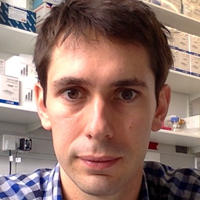 Will McEwan trained as a virologist at the University of Glasgow, undertaking a PhD on the cross-species transmission of feline immunodeficiency virus. He moved to the Laboratory of Molecular Biology in Cambridge where he worked as a postdoc in the group of Leo James. There he helped identify TRIM21 as a cytoplasmic receptor for antibodies. Will recently obtained a Wellcome Trust Sir Henry Dale Fellowship to establish his own group at the University of Cambridge. His group is dedicated to understanding the mechanisms that permit selective degradation of cellular proteins.
Will McEwan trained as a virologist at the University of Glasgow, undertaking a PhD on the cross-species transmission of feline immunodeficiency virus. He moved to the Laboratory of Molecular Biology in Cambridge where he worked as a postdoc in the group of Leo James. There he helped identify TRIM21 as a cytoplasmic receptor for antibodies. Will recently obtained a Wellcome Trust Sir Henry Dale Fellowship to establish his own group at the University of Cambridge. His group is dedicated to understanding the mechanisms that permit selective degradation of cellular proteins.
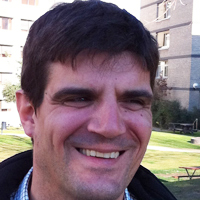 Juan Nàcher is Full Professor at the Neurobiology Unit of the Universitat de València, he is also associated to the Spanish Research Network on Mental Health (CIBERSAM) and has been vice-president of the Spanish Neuroscience Society (SENC). He received his Ph.D. in Neurobiology at the U.V. and developed postdoctoral work in Bruce McEwen’s lab in Rockefeller University, studying the effects of stress and NMDA receptor manipulation on adult neuronal structural plasticity. After coming back to Valencia, he has continued his research on this plasticity, specially on that of inhibitory networks. Current projects in his lab focus on the alterations of the structure and connectivity of interneurons induced by aversive experiences during adulthood or early life and by psychiatric disorders, such as major depression or schizophrenia.
Juan Nàcher is Full Professor at the Neurobiology Unit of the Universitat de València, he is also associated to the Spanish Research Network on Mental Health (CIBERSAM) and has been vice-president of the Spanish Neuroscience Society (SENC). He received his Ph.D. in Neurobiology at the U.V. and developed postdoctoral work in Bruce McEwen’s lab in Rockefeller University, studying the effects of stress and NMDA receptor manipulation on adult neuronal structural plasticity. After coming back to Valencia, he has continued his research on this plasticity, specially on that of inhibitory networks. Current projects in his lab focus on the alterations of the structure and connectivity of interneurons induced by aversive experiences during adulthood or early life and by psychiatric disorders, such as major depression or schizophrenia.
http://www.nacherlab.com
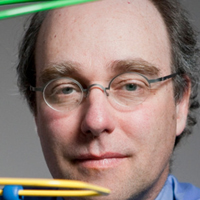 Dr. Tim Oberlander is a physician-scientist whose work “bridges” developmental neurosciences and community child health. As a clinician he is the medical lead for the Complex Pain Service at BC Children’s Hospital with a particular focus managing pain in children with developmental disabilities.
Dr. Tim Oberlander is a physician-scientist whose work “bridges” developmental neurosciences and community child health. As a clinician he is the medical lead for the Complex Pain Service at BC Children’s Hospital with a particular focus managing pain in children with developmental disabilities.
As a researcher, Dr Oberlander’s work seeks to understand how early life experiences, related to in utero exposure to antidepressants, shape stress reactivity, cognition and attention during childhood that contribute to the early origins of self-regulation.
His work provides strong evidence that both maternal mood and in utero selective serotonin reuptake inhibitor (SSRI) antidepressant exposure influences infant and childhood behavior, possibly via early changes in central serotonin signaling. His work shows that the developing brain has a remarkable capacity for plasticity and recovery.
His work is driven by curiosity and passion to know why even in the face of adversity, some children do very well and others have more difficulty with learning thinking and behavior. The goal of his work is to figure out how and why this happens.
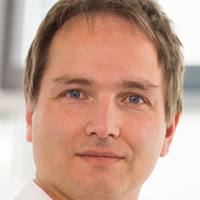 Dr Pfluger’s academic research is directed towards elucidating molecular mechanisms that regulate energy and glucose homeostasis, with a special emphasize on the hypothalamic control of leptin action. He earned his Master in Human and Environmental Toxicology at the University of Konstanz, Germany, subsequently graduated in Biochemistry of Micronutrients at the German Institute of Human Nutrition, University of Potsdam, Germany, and continued his education as postdoctoral fellow at the Dept. of Psychiatry, University of Cincinnati. In summer 2009, he was awarded a faculty position as Research Assistant Professor at the Dept. of Internal Medicine, University of Cincinnati, OH. In October 2011 he returned to Europe to serve as Associate Director of the Institute for Diabetes and Obesity at the Helmholtz Centre Munich, Germany. In April 2015, he was appointed head of the Research Unit NeuroBiology of Diabetes at the Helmholtz Center Munich, Germany.
Dr Pfluger’s academic research is directed towards elucidating molecular mechanisms that regulate energy and glucose homeostasis, with a special emphasize on the hypothalamic control of leptin action. He earned his Master in Human and Environmental Toxicology at the University of Konstanz, Germany, subsequently graduated in Biochemistry of Micronutrients at the German Institute of Human Nutrition, University of Potsdam, Germany, and continued his education as postdoctoral fellow at the Dept. of Psychiatry, University of Cincinnati. In summer 2009, he was awarded a faculty position as Research Assistant Professor at the Dept. of Internal Medicine, University of Cincinnati, OH. In October 2011 he returned to Europe to serve as Associate Director of the Institute for Diabetes and Obesity at the Helmholtz Centre Munich, Germany. In April 2015, he was appointed head of the Research Unit NeuroBiology of Diabetes at the Helmholtz Center Munich, Germany.
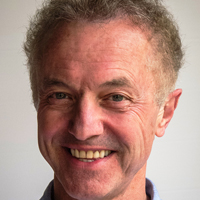 Adrian Raine is the Richard Perry University Professor of Criminology, Psychiatry, and Psychology at the University of Pennsylvania. He gained his undergraduate degree in Experimental Psychology at the University of Oxford, and his PhD in Psychology from the University of York, UK. His interdisciplinary research focuses on the etiology and prevention of antisocial, violent, and psychopathic behavior in children, adolescents, and adults. He has been the principal investigator on 18 extramural research grants and main mentor on 11 NIH pre- and post-doctoral awards He has published over 420 journal articles and book chapters alongside 7 books, and has given over 370 invited presentations in 29 countries. His most recent book, The Anatomy of Violence, reviews the brain basis to violence and draws future implications for the punishment, prediction, and prevention of offending, as well as the neuroethical concerns surrounding this work. He is past-President of the Academy of Experimental Criminology, and awards include an honorary degree from the University of York (UK) in 2015 and the Lifetime Achievement Award in Psychopathy from the Society for the Scientific Study of Psychopathy in 2017.
Adrian Raine is the Richard Perry University Professor of Criminology, Psychiatry, and Psychology at the University of Pennsylvania. He gained his undergraduate degree in Experimental Psychology at the University of Oxford, and his PhD in Psychology from the University of York, UK. His interdisciplinary research focuses on the etiology and prevention of antisocial, violent, and psychopathic behavior in children, adolescents, and adults. He has been the principal investigator on 18 extramural research grants and main mentor on 11 NIH pre- and post-doctoral awards He has published over 420 journal articles and book chapters alongside 7 books, and has given over 370 invited presentations in 29 countries. His most recent book, The Anatomy of Violence, reviews the brain basis to violence and draws future implications for the punishment, prediction, and prevention of offending, as well as the neuroethical concerns surrounding this work. He is past-President of the Academy of Experimental Criminology, and awards include an honorary degree from the University of York (UK) in 2015 and the Lifetime Achievement Award in Psychopathy from the Society for the Scientific Study of Psychopathy in 2017.
 Marco Andrea Riva is Full Professor of Pharmacology at the Department of Pharmacological and Biomolecular Sciences and he is coordinator of the degree in Pharmacy at the University of Milan.
He received his degree in Pharmaceutical Chemistry and Technology in 1984, and his Specialization in Pharmacology in 1987 from the University of Milan. He has been a Postdoctoral fellow at Rutgers University, NJ (1987-1989) and at Georgetown University of Washington DC (1989-1991). After being Research Assistant at San Raffaele Hospital, from 1994 to 1997, he became Assistant Professor of Pharmacology at the University of Milan in 1998 and he was appointed Associate Professor in 2001 and Full Professor in 2015.
He is author of 183 papers on peer review journals and 21 chapters of books or Congress proceedings (H index =48). He is member of different scientific societies and he is recipient of grants from Italian Agencies (Ministry of University and Ministry of Health), foundations (NARSAD, CARIPLO) and European Union (ERANET). He has been invited as speakers from different Italian and Foreign Universities. His research is primarily devoted to molecular psychiatry and neuropsychopharmacology.
Marco Andrea Riva is Full Professor of Pharmacology at the Department of Pharmacological and Biomolecular Sciences and he is coordinator of the degree in Pharmacy at the University of Milan.
He received his degree in Pharmaceutical Chemistry and Technology in 1984, and his Specialization in Pharmacology in 1987 from the University of Milan. He has been a Postdoctoral fellow at Rutgers University, NJ (1987-1989) and at Georgetown University of Washington DC (1989-1991). After being Research Assistant at San Raffaele Hospital, from 1994 to 1997, he became Assistant Professor of Pharmacology at the University of Milan in 1998 and he was appointed Associate Professor in 2001 and Full Professor in 2015.
He is author of 183 papers on peer review journals and 21 chapters of books or Congress proceedings (H index =48). He is member of different scientific societies and he is recipient of grants from Italian Agencies (Ministry of University and Ministry of Health), foundations (NARSAD, CARIPLO) and European Union (ERANET). He has been invited as speakers from different Italian and Foreign Universities. His research is primarily devoted to molecular psychiatry and neuropsychopharmacology.
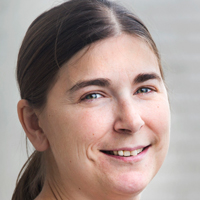 Anke Sambeth (16 June 1977) studied Psychology at the department of Biological Psychology at Radboud University Nijmegen, the Netherlands. She received her PhD from the same department in October 2004, after which she continued her career as a postdoc. Between February 2004 and June 2005, she studied the effects of attention on brain processing in healthy neonates at the University of Helsinki, Finland. In summer 2005, she moved to the Faculty of Psychology and Neuroscience in Maastricht, where she became interested in the neurobiology of memory. She received an NWO Veni grant on the interaction between acetylcholine and serotonin in memory processing in 2007. In 2010, Anke was appointed Assistant Professor. Her main research interest relates to enhancing memory performance in both healthy volunteers and clinical populations using pharmacological manipulations. In her research, she generally compares task performance with its EEG correlates to determine drug effects on cognition. Anke was co-promotor of 3 PhD students and is currently co-supervising 2 PhD students. Additionally, since 2014 she works as Education Director at the Faculty of Psychology and Neuroscience, with a key role in quality assurance of the teaching programmes. In this role, Anke is currently also developing research lines into optimal study performance by students.
Anke Sambeth (16 June 1977) studied Psychology at the department of Biological Psychology at Radboud University Nijmegen, the Netherlands. She received her PhD from the same department in October 2004, after which she continued her career as a postdoc. Between February 2004 and June 2005, she studied the effects of attention on brain processing in healthy neonates at the University of Helsinki, Finland. In summer 2005, she moved to the Faculty of Psychology and Neuroscience in Maastricht, where she became interested in the neurobiology of memory. She received an NWO Veni grant on the interaction between acetylcholine and serotonin in memory processing in 2007. In 2010, Anke was appointed Assistant Professor. Her main research interest relates to enhancing memory performance in both healthy volunteers and clinical populations using pharmacological manipulations. In her research, she generally compares task performance with its EEG correlates to determine drug effects on cognition. Anke was co-promotor of 3 PhD students and is currently co-supervising 2 PhD students. Additionally, since 2014 she works as Education Director at the Faculty of Psychology and Neuroscience, with a key role in quality assurance of the teaching programmes. In this role, Anke is currently also developing research lines into optimal study performance by students.
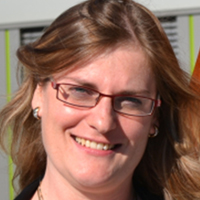 Anja Scheller studied Biochemistry and graduated with her diploma at the Free University of Berlin (Germany) in 2004. She joined the Max-Planck-Institute of Experimental Medicine in Goettingen (Germany) for her Ph.D. thesis, which she gained in 2008 (from the Free University of Berlin). In her thesis she studied the effect of acute cortical trauma on astrocytes and oligodendrocytes using newly generated transgenic mice.
Anja Scheller studied Biochemistry and graduated with her diploma at the Free University of Berlin (Germany) in 2004. She joined the Max-Planck-Institute of Experimental Medicine in Goettingen (Germany) for her Ph.D. thesis, which she gained in 2008 (from the Free University of Berlin). In her thesis she studied the effect of acute cortical trauma on astrocytes and oligodendrocytes using newly generated transgenic mice.
Dr Scheller currently works as a project leader in the Department of Molecular Physiology (Prof. Frank Kirchhoff) at the Center for Integrative Physiology and Molecular Medicine (CIPMM) in Homburg/Saar (Germany). Her work is focused on glial pathology (acute trauma and Multiple Sclerosis) using transgenic mice, in vivo 2P-Laser Scanning Microscopy and electrophysiological approaches. Her main research interest is the further understanding of neuron-glia interaction in health and disease.
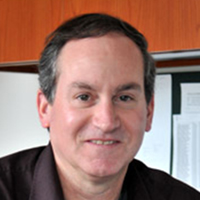 Yavin Shaham received his BS and MA from the Hebrew U, Jerusalem, and his PhD from the Uniformed Services University of the Health Sciences, Bethesda, MD. His postdoctoral training was at Concordia U, Montreal, in the laboratory of Dr. Jane Stewart. Prior to joining the NIDA Intramural Research Program as a tenure-track investigator, he was an investigator at the Addiction Research Center in Toronto. He is currently a tenured Branch Chief and a Senior Investigator. His major awards include the NIDA Director’s Award of Merit (2001), the Society of Neuroscience Jacob Waletzky award for innovative research in drug and alcohol addiction (2006), the NARSAD Distinguished Investigator Grant Award (2016), and the European Behavioral Pharmacology Society Distinguished Achievement Award (2017). He has published over 200 empirical papers, reviews, and commentaries, and his papers were cited over 24,500 times (h-factor: 85; Google Scholar). He currently serves as a Senior Editor for The Journal of Neuroscience and as a Handling (Reviewing) Editor of Neuropsychopharmacology. He is also an editorial board member of Biological Psychiatry, Psychopharmacology, and Addiction Biology. His group currently investigates mechanisms of relapse to heroin, oxycodone, cocaine, and methamphetamine, as assessed in rat models developed in his lab. Most recently, his lab has developed an operant aggression addiction model to study mechanisms of relapse to aggression addiction in mice.
Yavin Shaham received his BS and MA from the Hebrew U, Jerusalem, and his PhD from the Uniformed Services University of the Health Sciences, Bethesda, MD. His postdoctoral training was at Concordia U, Montreal, in the laboratory of Dr. Jane Stewart. Prior to joining the NIDA Intramural Research Program as a tenure-track investigator, he was an investigator at the Addiction Research Center in Toronto. He is currently a tenured Branch Chief and a Senior Investigator. His major awards include the NIDA Director’s Award of Merit (2001), the Society of Neuroscience Jacob Waletzky award for innovative research in drug and alcohol addiction (2006), the NARSAD Distinguished Investigator Grant Award (2016), and the European Behavioral Pharmacology Society Distinguished Achievement Award (2017). He has published over 200 empirical papers, reviews, and commentaries, and his papers were cited over 24,500 times (h-factor: 85; Google Scholar). He currently serves as a Senior Editor for The Journal of Neuroscience and as a Handling (Reviewing) Editor of Neuropsychopharmacology. He is also an editorial board member of Biological Psychiatry, Psychopharmacology, and Addiction Biology. His group currently investigates mechanisms of relapse to heroin, oxycodone, cocaine, and methamphetamine, as assessed in rat models developed in his lab. Most recently, his lab has developed an operant aggression addiction model to study mechanisms of relapse to aggression addiction in mice.
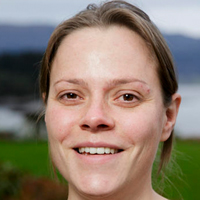 Eelke Snoeren is an associate professor in behavioral neuroscience at UiT The Arctic University of Norway. She received her PhD in psychopharmacology at the Utrecht University on the topic “in search for animal models of female sexual dysfunction” under supervision of Prof. Berend Olivier in 2010. She continued her scientific career as postdoctoral fellow in the Ågmo lab at UiT The Arctic University of Norway, where she studied the intrinsic (sexual) motivational state of rats and the role of specific incentive stimuli. In October 2013, she started her independent research as associate professor using sexual behavior as a natural incentive-driven behavior to study the neurobiological mechanisms of the motivational system in rats.
Eelke Snoeren is an associate professor in behavioral neuroscience at UiT The Arctic University of Norway. She received her PhD in psychopharmacology at the Utrecht University on the topic “in search for animal models of female sexual dysfunction” under supervision of Prof. Berend Olivier in 2010. She continued her scientific career as postdoctoral fellow in the Ågmo lab at UiT The Arctic University of Norway, where she studied the intrinsic (sexual) motivational state of rats and the role of specific incentive stimuli. In October 2013, she started her independent research as associate professor using sexual behavior as a natural incentive-driven behavior to study the neurobiological mechanisms of the motivational system in rats.
In 2015, she received two large grants: a Young Research Talents grant (FRIPRO) from the Norwegian Research council (Which brain projection are involved in natural reward) and a Helse-Nord grant (Antidepressant use during pregnancy: The neurodevelopmental effects on the offspring). Her university awarded her with the Young researcher award of the Faculty of Health Sciences. Since January 2018, she is leading the research group “behavioral and translational neuroscience” at UiT The Arctic University of Norway.
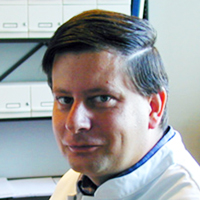 Kees Stam (1959) studied medicine in Utrecht. Following his medical studies he did animal research on the role of the mesocortical dopaminergic system in frontal behavioral disturbances at the Netherlands Institue of Brain Research in Amsterdam. He combined his training as a neurologist with PhD work on frontal cognitive disturbances in Parkinson’s disease using event-related potentials. During his work as a neurologist and clinical neurophysiologist at the Leyenburg hospital in The Hague he continued and expanded his research directed at neurophysiological mechanisms of cognitive dysfunction in neurological disorders, in particular in Alzheimer’s and Parkinson’s disease, using tools from nonlinear dynamical systems theory and computational modeling with neural mass models. In 2000 he was appointed professor of clinical neurophysiology at the VU medical center in Amsterdam. Since 2000 his scientific work has focused on connectivity and graph theoretical network studies in various neurological disorders such as Alzheimer’s and Parkinson’s disease, multiple sclerosis, brain tumours and epilepsy. He developed several new methods for functional connectivity analysis such as the the synchronization likelihood and the phase lag index. He was the first to apply graph theory to EEG and MEG recordings in healthy subjects and neurological patients. He has created the BrainWave software which is used for the study of connectivity, networks and whole brain models. An overview of the work of his group can be found at http://home.kpn.nl/stam7883/
Kees Stam (1959) studied medicine in Utrecht. Following his medical studies he did animal research on the role of the mesocortical dopaminergic system in frontal behavioral disturbances at the Netherlands Institue of Brain Research in Amsterdam. He combined his training as a neurologist with PhD work on frontal cognitive disturbances in Parkinson’s disease using event-related potentials. During his work as a neurologist and clinical neurophysiologist at the Leyenburg hospital in The Hague he continued and expanded his research directed at neurophysiological mechanisms of cognitive dysfunction in neurological disorders, in particular in Alzheimer’s and Parkinson’s disease, using tools from nonlinear dynamical systems theory and computational modeling with neural mass models. In 2000 he was appointed professor of clinical neurophysiology at the VU medical center in Amsterdam. Since 2000 his scientific work has focused on connectivity and graph theoretical network studies in various neurological disorders such as Alzheimer’s and Parkinson’s disease, multiple sclerosis, brain tumours and epilepsy. He developed several new methods for functional connectivity analysis such as the the synchronization likelihood and the phase lag index. He was the first to apply graph theory to EEG and MEG recordings in healthy subjects and neurological patients. He has created the BrainWave software which is used for the study of connectivity, networks and whole brain models. An overview of the work of his group can be found at http://home.kpn.nl/stam7883/
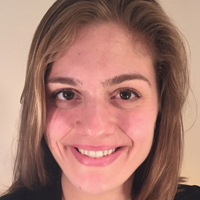 Chelsea Stillman obtained her PhD. In Lifespan Cognitive Neuroscience from Georgetown University. She is currently a postdoctoral fellow in the University of Pittsburgh School of Medicine, where she is working to design and evaluate behavioral interventions to maximize cognitive and brain plasticity in late life. Specifically, she applies her developmental and cognitive neuroscience training to evaluate the neurocognitive effects of physical activity interventions in middle-aged and older adults. As a result of this research, she has become increasingly interested in facilitating the transfer of cutting edge research from academic labs into community, clinical, and commercial contexts. In addition to her role as a scientist, she works closely with faculty and administrators at the University to promote academic-industry collaborations and accelerate clinical and commercial translation in the area of brain health. She currently has no conflicts of interest to report.
Chelsea Stillman obtained her PhD. In Lifespan Cognitive Neuroscience from Georgetown University. She is currently a postdoctoral fellow in the University of Pittsburgh School of Medicine, where she is working to design and evaluate behavioral interventions to maximize cognitive and brain plasticity in late life. Specifically, she applies her developmental and cognitive neuroscience training to evaluate the neurocognitive effects of physical activity interventions in middle-aged and older adults. As a result of this research, she has become increasingly interested in facilitating the transfer of cutting edge research from academic labs into community, clinical, and commercial contexts. In addition to her role as a scientist, she works closely with faculty and administrators at the University to promote academic-industry collaborations and accelerate clinical and commercial translation in the area of brain health. She currently has no conflicts of interest to report.
 Humans can flexibly control their behavior in response to internal and external demands. They can also voluntarily decide which action to take. My main research interests are the neuronal mechanisms that underlie behavioral control and decision making. I study these two important and interrelated functions by recording the activity of single neurons and local field potentials in awake, behaving monkeys. My first experience in electrophysiological recordings in monkeys was during my graduate work at the Ruhr-Universität Bochum in Germany. During my work as a postdoctoral fellow at Vanderbilt University, I begun to studying the role of the frontal cortex in response inhibition and evaluation. After I started my own independent laboratory at Johns Hopkins University in 2004, I continued to study behavioral control and decision making. I laid the groundwork for the proposed research by building up a primate electrophysiology laboratory with the techniques and expertise to record the simultaneous activity of multiple single neurons and local field potentials from multiple electrodes in behaving monkeys. Currently, my lab studies response inhibition, self-control, decisions under risk, and multi-attribute decision making.
Humans can flexibly control their behavior in response to internal and external demands. They can also voluntarily decide which action to take. My main research interests are the neuronal mechanisms that underlie behavioral control and decision making. I study these two important and interrelated functions by recording the activity of single neurons and local field potentials in awake, behaving monkeys. My first experience in electrophysiological recordings in monkeys was during my graduate work at the Ruhr-Universität Bochum in Germany. During my work as a postdoctoral fellow at Vanderbilt University, I begun to studying the role of the frontal cortex in response inhibition and evaluation. After I started my own independent laboratory at Johns Hopkins University in 2004, I continued to study behavioral control and decision making. I laid the groundwork for the proposed research by building up a primate electrophysiology laboratory with the techniques and expertise to record the simultaneous activity of multiple single neurons and local field potentials from multiple electrodes in behaving monkeys. Currently, my lab studies response inhibition, self-control, decisions under risk, and multi-attribute decision making.
 Laura Trovó studied Biotechnologies in Italy and later obtained her PhD in molecular genetics from the Catholic University of Leuven (Belgium), where she studied the role of several membrane lipids in neuronal survival and function during ageing. She is currently a postdoctoral fellow at the Institute of Neuronal Cell Biology in Munich in the laboratory of Thomas Misgeld. Thanks to an EMBO long-term fellowship she applies her lipid-related training to evaluate axon-degenerative pathways. Furthermore, she has become increasingly interested in mitochondrial biology and in understanding how heterogeneous this organelle might be in the CNS.
Laura Trovó studied Biotechnologies in Italy and later obtained her PhD in molecular genetics from the Catholic University of Leuven (Belgium), where she studied the role of several membrane lipids in neuronal survival and function during ageing. She is currently a postdoctoral fellow at the Institute of Neuronal Cell Biology in Munich in the laboratory of Thomas Misgeld. Thanks to an EMBO long-term fellowship she applies her lipid-related training to evaluate axon-degenerative pathways. Furthermore, she has become increasingly interested in mitochondrial biology and in understanding how heterogeneous this organelle might be in the CNS.